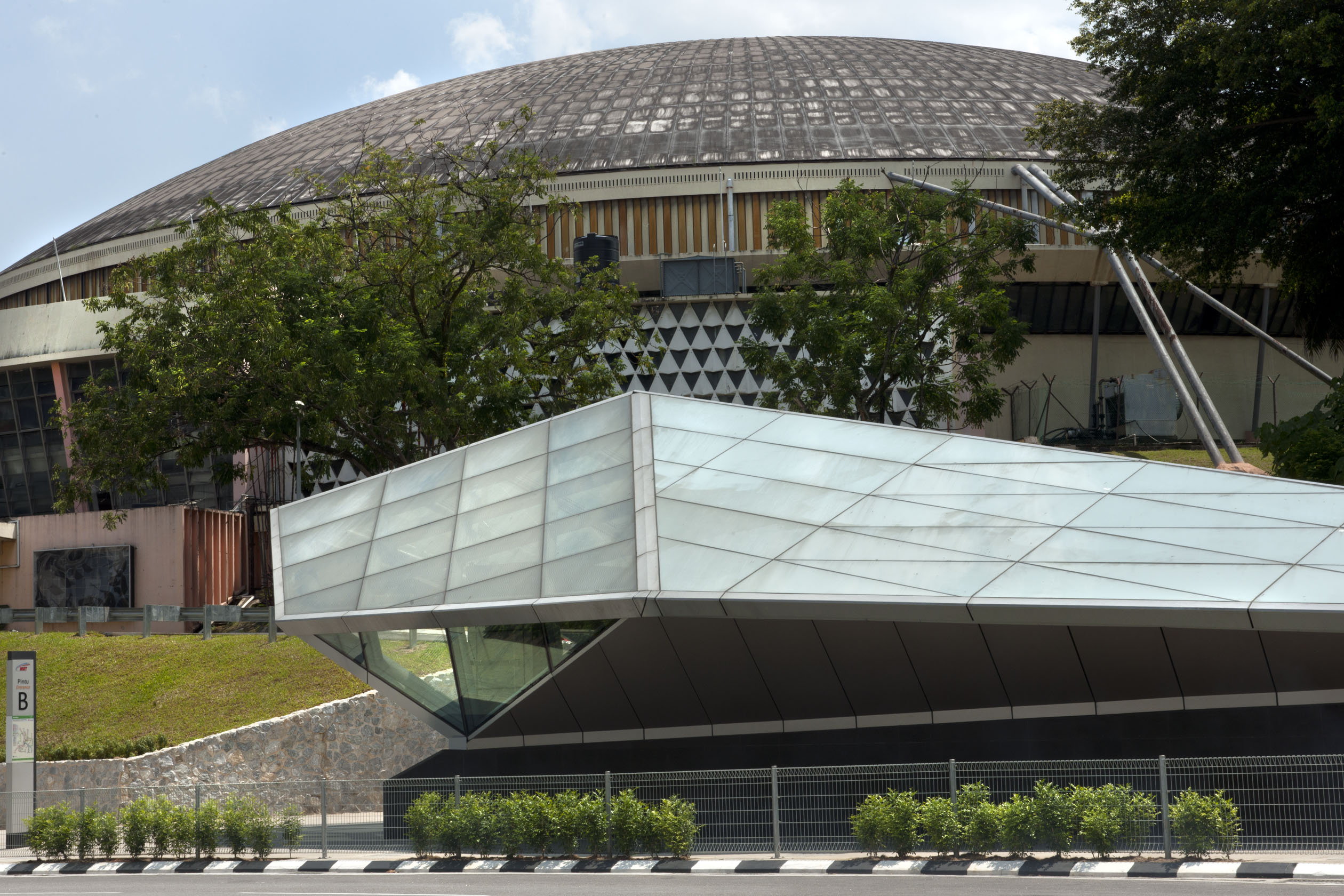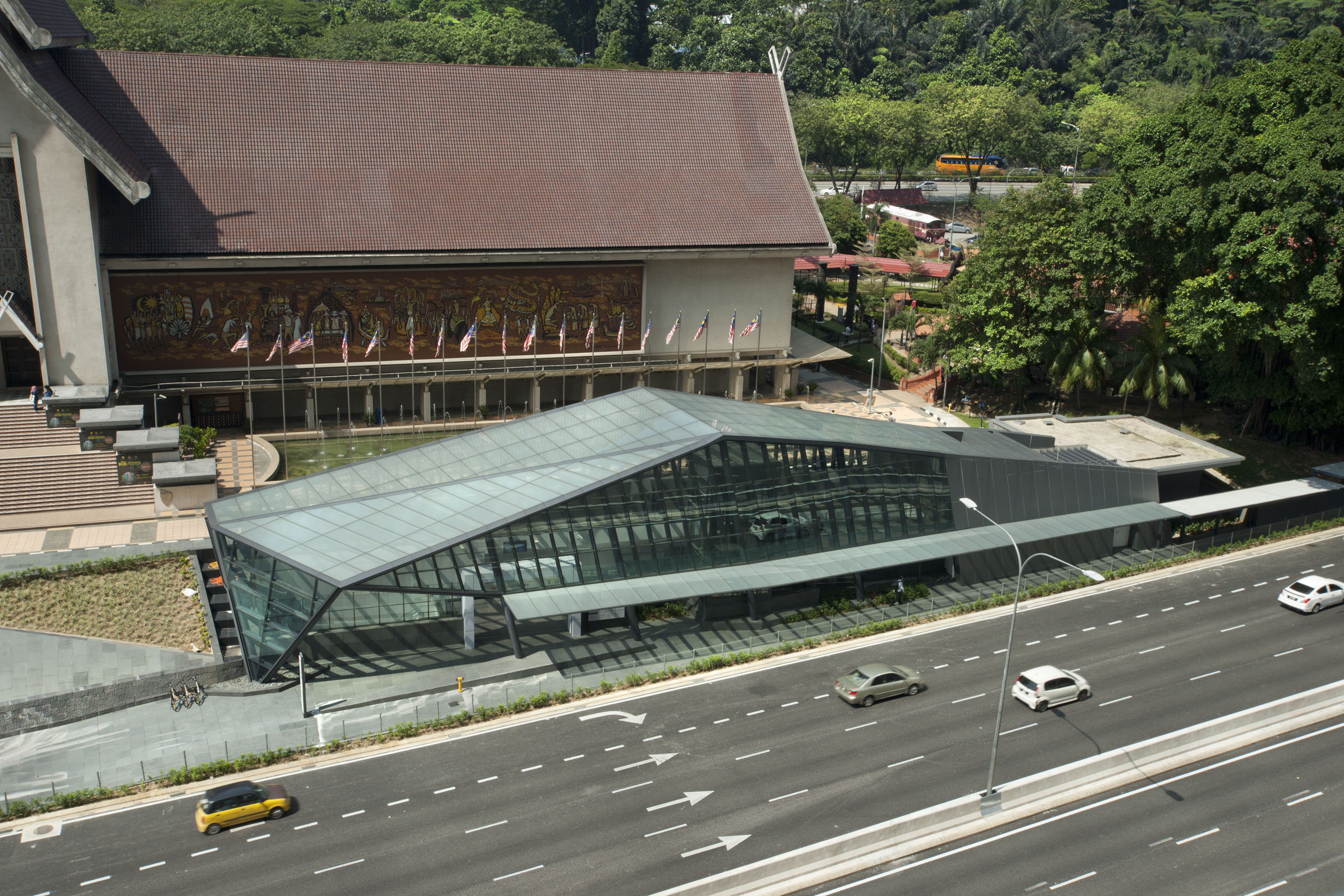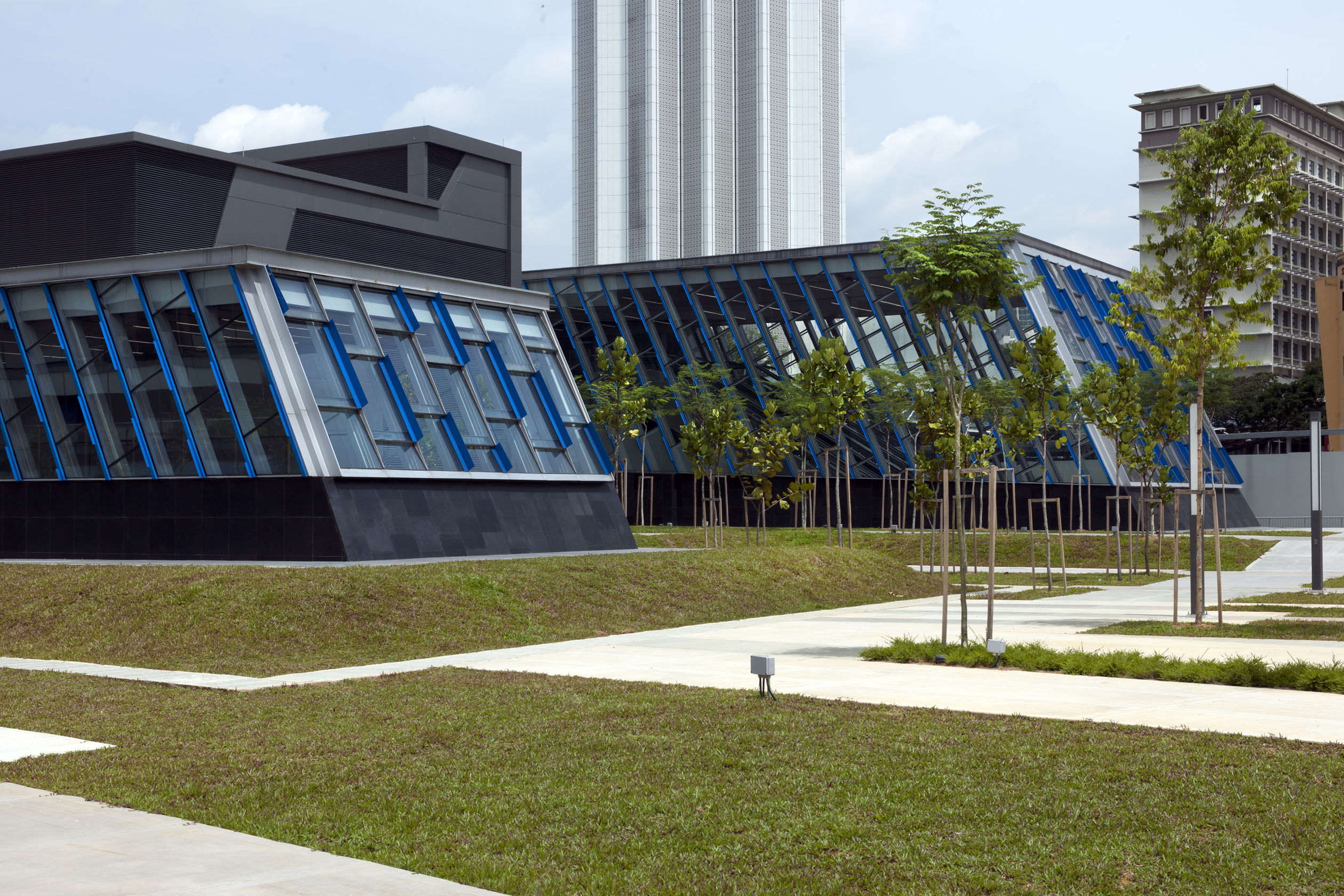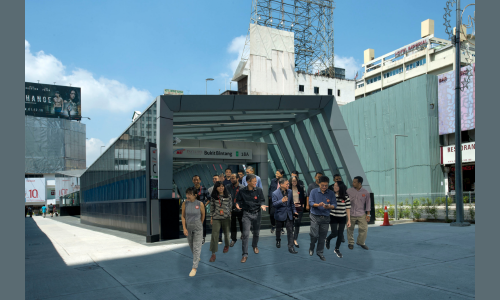Transport, Transit, Transform: Urban Planning for Future Now.
During the roundtable discussion with VERITAS Design Group, something cropped up that seems to be not quite an impossible notion – that the millennials and generations to come are not going to be worried so much about transportation, the issue that got previous generations hot under the collar – sometimes literally – for decades.
"The younger generation are not so much in love with cars as my generation or your generation were," says David Mizan Hashim, Group President and Director of the VERITAS Design Group. He pointed this out during the recent roundtable discussion that was held at their premises with the Rail Team.
"They are more into their handphones and so hyperactive on social media that they don’t have much need for a car." "Yes, cars may be nice to own, but having the latest Samsung is more important," he added.
This is a far cry, perhaps, from decades ago when transportation was the major part of communication – those frustrating house calls to be made, the mail to be sent, the meetings that needed to be convened, the appointments to be kept, and all the mass point-to-point transit that occurred. Madness! the future generation might think—how did the earlier generation ever move about?

In Malaysia, a shift in focus occurred when mass public transportation like LRT arrived and started inspiring folks to think about commuting responsibly a good two decades ago, which now seems like ages.
"The focus then was on the influx of cars, the traffic congestion," said Ng Yiek Seng, Principal of VERITAS Planning Sdn Bhd and VERITAS Architects Sdn Bhd. "If you look at our country’s history, for a long time it has been the focus – cars, automotives." The aspiration has always been to own them, and likewise, let’s not forget our country’s own successful ambition to produce homemade ones. Sadly, the side effect of that was the traffic congestion. Over time, the side dish took over the main course – and traffic congestion has to be included in any scheduling conflicts or write-offs.
But the world has caught up, much more in this part of the world. Ng pointed out the mass transit systems, especially in east Asia, having seen the success of such transportation networks in densely populated cities like New York, with its celebrated subway system, which is a chief mode of transport for the working class and celebrities alike.
"In China and Taiwan, they probably doubled what the world has... "You see the transformation in our country, our neighbours... as you see the natural progression of technology and network going across the world," said Edward Chew Fook Kong, Principal of VERITAS Architects Sdn Bhd, who insisted that this was indeed a natural progression in the integration and interconnectivity that the world was embracing increasingly. "Hopefully, with this interconnectivity, there will be less stress and friction between people," noted Edward. "Culture can be brought closer together. That’s actually the most important thing about it—interconnectedness."
This would explain, or even unmake, the notion of the often arising, and sometimes sinking, popularity of Transit-Oriented Developments (TODs). What are TODs? This definition notes that it is... "an urban development that magnifies the amount of residential, commercial, and leisure space within walking distance of public transport. It fosters a symbiotic relationship between dense, compact urban form, design and public transport use."…which, notes Hashim, has not quite been off the mark at any time.
"You see, theoretically, TOD is a very good idea," he argues. "Because where transportation is available, a higher density of people is required to make the transportation system viable. Transportation systems are expensive, and the only way for them to be affordable is to have everyone use them."
For that, he says, there should be a heavier deployment of TOD and this will only encourage more and more users. "And therefore, it starts to pay for itself."
Hashim continues with his pro-TOD assessment by bluntly pointing out that TODs are indeed fantastic for urban planning. So, what you have here is, instead of distributing higher density across the city, which creates lots of traffic. But by concentrating on the nodes, on transportation, and on the line, people don’t need to travel by car as much anymore. According to what he says, folks would mostly be confined within their own "TOD community", which preferably is a mixed-use development, with everything convenient within reach on foot, or with bicycles and the like. "You will only use the mass rapid transit system to go out and meet your family, relatives, friends, whatever." The need for private vehicles would become much less... and, who knows, might even disappear, "he fantasised. The main point of TODs and contemporary urban planning, especially in the Klang Valley and the neighbouring vistas, is to have as little long-distance commuting as possible—reduced in the day-to-day schedules of the denizens here.

Ng, in particular, was very particular about the "within reach" part of TODs. "You can have your mamak, your food, you can shop and get everything done," he notes. "Another hundred metres away could be where your kids can go to school, and within two hundred metres you have hospitals and medical facilities all within walking distance, so chances are you will choose this lifestyle accordingly as well."
A change of lifestyle will facilitate a change of mindset. That the number of cars is growing and congesting the roads is a non-issue and has been the norm. But with good urban planning, the dwellers are skewered into thinking more strategically with the excellent transportation system that can help with all the downsides, physical and mental agitations associated with road rages, disrupted disciplines, and yes, even save thousands of lives that are lost in vehicular tragedies.
But the infrastructure will have to be in place, and it has to be in place fast! "Increasingly, a greater number of people are moving to the cities, and by 2050 it is estimated that 70 percent of the world population will be living in the cities," notes Hashim, adding that the same percentage can be expected here in Malaysia. 70% of the country's population is moving to cities by 2050—it's hard to believe now, but we'll be there in thirty years. Can we?
Perhaps if we take a page (or several) from the history of cities around the world, "(Currently in Malaysia), only around 20 percent of commuters use the rail network." In developed places like HK, 80% of the population uses the rail regularly. Likewise, in New York, around 90% use public transportation, Hashim adds. "And, mind you, it’s not unusual to see billionaires in London using the rail."
Tall order. There is so much more to achieve in other departments, let alone transportation when compared to those cities. But we can always take a peek at what our neighbours are doing. Singapore, for example, has long dealt with traffic issues through Electronic Road Pricing (ERP)—a system in which a charge is imposed during certain hours in the island's busiest areas.
"Imagine in the parts of KL, like Sultan Ismail, Ampang, you have ERP where you have to pay to go in, charge your Touch N Go... Then, this will encourage the use of public transportation, "says Hashim.
Hashim, Ng, and Edward should know and understand these issues well. VERITAS Design Group has been involved in projects that are varied and notable, such as the Nusajaya West Masterplan as well as Nusantara (the new capital city of Indonesia), and many other projects around the world. VERITAS understands these changes and the direction that’s taking place in urban planning.
The biggest change, says Ng, will happen in time. In fact, with what is currently the mind map of the Klang Valley filled with overcrowded snakes and ladders, the future will comprise of a simpler network of stations and stops of the public transportation system. Hashim pointed out a good example of planning—Paris’ Mayor Anne Hidalgo, who, alongside a good track record in environmental policies, pursued massive reform in the transportation arena, introducing free public transit for children, electric bikes also free for children, among others.

He noted that we Malaysians are now more concerned about comfort and convenience. "Malaysia, like the rest of the world, is into convenience and efficiency," he notes. It is convenient to not have to drive and park your car, yet still have their Mamak restaurant, Starbucks, and cinemas all within walking distance.
When you have all that, he asks, why would one need a car? "Maybe for the weekend," he muses. "Then you definitely need a car!" Who knows, from their current status as a massive polluter, source of stress, and cause of fatal accidents, cars might now slowly transition into semi-retirement and become one of the weekend getaway pleasures one looks forward to. The mention of public transportation will no longer, hopefully, draw a sour-faced response anymore.
About VERITAS Design Group
The VERITAS Design Group was founded in 1987 on the principles of constant innovation and a commitment to the highest standards of professionalism.
Today, VERITAS is led by its Founder and Group President David Mizan Hashim and Vice President Lillian Tay, supported by a team of 18 Principals in Malaysia and across the world. These leaders are backed by a team of almost 350 qualified professionals and support staff establishing VERITAS as one of the top 100 multi-disciplinary design practices in the world.
VERITAS, began as an architectural practice, but now offers a full range of supporting design services for the built environment through subsidiary companies. These include Interior Design, Landscape Design, Planning, Environmental Consulting, Engineering, Quantity Surveying, Project Management and Claim Consulting.
This content is provided by Veritas Design Group
Interested in having your announcements on Malaysiakini? Contact the announcements team at [email protected] or whatsapp on +60 17-323 0707 for urgent matters.
RM12.50 / month
- Unlimited access to award-winning journalism
- Comment and share your opinions on all our articles
- Gift interesting stories to your friends
- Tax deductable
